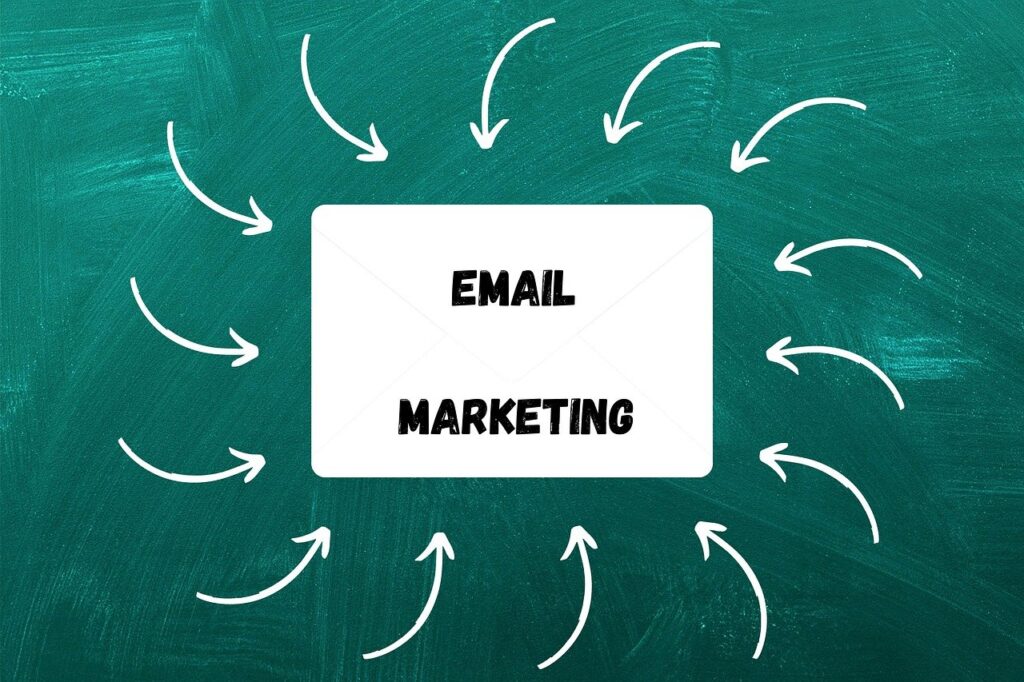Digital marketing is a great way for businesses to reach out to their audiences and build relationships at the same time. Best Email Marketing Tools. If you are a small business owner, a marketer, or an entrepreneur, the mailing tool that could help one’s endeavors will surely make an enormous difference in outcome. The article discusses the email marketing tools available, what makes each one unique, and how they can help you achieve your marketing goals.
Best Email Marketing Tools:
Mailchimp
Mailchimp is among the most widely used email marketing platforms with a very simple user interface and an impressive myriad of features. It even provides a free plan for novice users. This makes it even more appealing for a small business owner.
Features: Drag-and-drop editor, aesthetic templates, automation workflow, and audience segmentation.
Pros: Very easy to use, free plan is available, extensive integrations.
Cons: Email lists can get expensive with size and very few features in free versions.
Constant Contact

Constant Contact is a dependable email marketing platform intended for small businesses, featuring many templates and tools for helpful email creation.
Features: Email tracking, drag-and-drop design, list segmentation.
Pros: Good support and 60-day free trial.
Cons: Less automation than offered by competitors.
ActiveCampaign
ActiveCampaign is a powerful email marketing platform for businesses wanting to grow. It enables companies to merge Email Marketing with CRM capabilities.
Features: Automation, lead scoring, and advanced segmentation.
Pros: Advanced marketers can experiment with ActiveCampaign being highly customizable.
Cons: Steep learning curve for new users.
HubSpot Email Marketing
HubSpot is a full-blown marketing platform which includes an email marketing tool. Perfectly fits large businesses that already use HubSpot’s CRM.
Features: Personalization, automation, analytics.
Pros: Seamless integration with HubSpot CRM.
Cons: Premium plans can become very expensive.
ConvertKit
ConvertKit is popular among bloggers, content creators, and small business owners. It gives priority to simplicity and usability.
Features: Landing pages, automation, and tagging of subscribers.
Pros: User-friendly interface and great for content creation.
Cons: Very limited design options.
Sendinblue
Sendinblue is an all-in-one marketing platform that includes email marketing, SMS marketing, etc. It is very affordable and quite versatile.
Features: Transactional email, automation, and A/B testing.
Pros: Low pricing and multi-channel marketing.
Cons: Limited integrations.
AWeber
AWeber is an easy-to-use and trusted email marketing tool; especially good for small businesses.
Features: Ready-made templates, automation, and comprehensive analytics.
Pros: Easy to get set up and solid customer support.
Cons: Not as much advanced functionality as others.
GetResponse
GetResponse is a versatile tool that includes email marketing, webinars, and marketing automation on one platform.
Features: Landing pages, email design, and advanced automation.
Pros: Useful for designing full-scale marketing funnels.
Cons: Its interface feels a little complex for beginners.
Drip
Drip is a tool for e-commerce businesses that consists of advanced features that help engage customers and drive sales.
Features: Behavior-based automation, SMS marketing, and e-commerce platform integrations.
Pros: Best suited for e-commerce and scale-up.
Cons: Advanced features are fairly pricey, especially when paying monthly.
Moosend
Moosend is very affordable and offers powerful features for email marketing, making it a great choice for small and medium enterprises.
Features: Automation, segmentation, and reporting.
Pros: Very affordable and user-friendly.
Cons: Much lesser integrations compared to larger competitors.
Benchmark Email

This easy-to-use tool makes creating professional emails a quick and easy task.
Features: Drag-and-drop editor, mobile-friendly templates, and automation.
Pros: Clean interface and a free plan.
Cons: Limited advanced features.
MailerLite
MailerLite is an affordable solution that emphasizes simplicity and fundamental email marketing functions.
Features: Drag-and-drop editor, surveys, and automation.
Pros: A free plan that preserves decent functionality.
Cons: Limited number of integrations and templates.
Zoho Campaigns
Zoho Campaigns are a part of the Zoho ecosystem, featuring an array of email marketing tools tightly integrated with other Zoho apps.
Features: Automation, analytics, and customizable templates.
Pros: A pricing structure that fits a budget and very robust integration with Zoho products.
Cons: Not best for non-Zoho users.
Campaign Monitor
Campaign Monitor knows for its beautiful templates and powerful email design tools.
Features: Advanced analytics, A/B testing, and automation.
Pros: Beautiful templates for emails and editing that is simple to use.
Cons: Limited functionality on lower-tier plans.
SendGrid
SendGrid is a robust platform used for both email marketing and transactional emails.
Features: API integration, automation, and analytics.
Pros: Scalable and geared towards developers.
Cons: More focused on transactional emails.
Choosing the Right Tool
In choosing an email marketing tool, consider your particular needs, budget, and size of your business. Mailchimp or Sendinblue are good options for starting with excellent free plans for beginners. While for marketers advanced enough, ActiveCampaign and HubSpot offer exceptional features.
Conclusion
Your email marketing tool can change your marketing; in better ways, they help you communicate with your audience and meet your goals. Check out all the tools outlined, experiment with each tool, and find the perfect match for your business. Initiate email marketing now and watch your business thrive.

